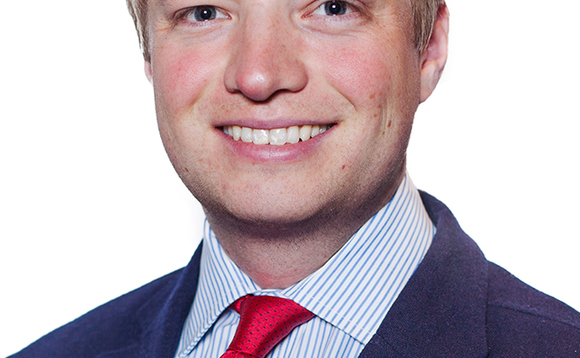
Q&A: Tommy Seddon, Riverside

Having recently joined Riversideтs origination team from DC Advisory, Tommy Seddon speaks to Alice Murray about finding quality deals in the increasingly competitive UK mid-market
Alice Murray: What are the key sources of new deal opportunities in the UK at the moment?
Tommy Seddon: We've seen a really good raft of opportunities from all sources; from owner-managed businesses and from financial sponsors. We can rule out take-private deals as the equity markets have been cooking over the last few months.
There has been lots of doom and gloom in the headlines but we are taking joy in working with strong businesses and good management teams. There is a good mix of opportunities for private businesses. We're seeing strong companies coming through with solid trading after the recession. For a lot of businesses today, it's no longer about damage limitation – they're much stronger.
AM: What sectors are you focusing on and what are their main attractions?
TS: We target businesses with global ambition and this strategy supports certain sectors; those that are borderless. Riverside has completed a broad range of deals, and most of those fall under one of our eight industry specialisations.
In the UK, we're seeing many interesting tech deals and very compelling consumer goods deals. The market is strong for companies with good brands, like Tyrrells English Crisps or Fever Tree. We've also seen German confectionery coatings specialist Capol and Italian swimwear producer Arena generate nice returns and we are excited about our recent purchase of Mec3, an Italian gelato ingredients company.
There are certain niches within the technology sector where multiples are looking pricey, and that's reflective of the fast growth in this market. When looking at valuations, the focus should be on a company's defensible thesis, which means investors have to work harder and really know what they're getting into.
More broadly, Riverside has a strong record in healthcare in addition to education & training and energy. These are typically business areas that see beyond borders.
What's really great is seeing the global connectivity across Riverside. Last week I was speaking to the team in Japan about strong British brands that are traveling well. Our global presence allows us to test the global case. This allows us to see beyond sectors.
AM: How competitive is the market today and how do you differentiate yourself from other players?
TS: It is very competitive today. For our market segment, we're able to differentiate ourselves because of our global reach.
We are competitive because we are deliberately seeking out businesses with global ambition. So if we're not the best owner of a certain asset then we will walk away from the process.
AM: Has the increased competition for quality assets impacted pricing?
TS: In the lower mid-market there is still lots of value to be had. We target little leaders in their respective niches, with a road map for further growth.
It does feel as if pricing is increasing at times; we often hear about valuations that we don't understand. But this is only for good businesses. For strong assets, stability of earnings means that investors will pay a premium. However, we seek ambitious companies.
Once you get past a certain level of earnings, the lending market is more competitive and that increases pressure on pricing. Fortunately, we sit below that invisible cut-off point.
AM: Are vendor price expectations meeting sellers' expectations?
TS: Perhaps there has been an increase in the number of processes that don't find funding.
Vendors are more sophisticated in what they seek from a partner. People are very careful to find the right partner, so it's much more about what you can offer in terms of support for the business – it's not just about blind equity. This is where we can be competitive; we have operating partners, we provide support to CEOs through the Riverside University and we can pool our global expertise.
Trust is very important. We genuinely seek to partner with businesses and put a lot of emphasis on being supportive and sympathetic investors. We know what businesses need and we know how to take them to the next level. Without that support the business might not flourish.
AM: Riverside has a very unique approach to origination, how does it work on a day-to-day basis?
TS: We have a team of more than 20 people across four continents dedicated to origination. The team co-ordinates itself globally. We're out there trying to meet as many businesses as possible and team members that find opportunities champion those deals through to the investment stage. We also work alongside the research team in mapping out markets and pin-pointing attractive assets. It's about strategic thinking so that we go out as an informed investor.
We looked at around 5,000 deals last year and because of this high volume we need to be able to sift through them quickly and make sure we're looking at the best opportunities. In a competitive situation it is of huge value that we can execute quickly. Our origination team can assess opportunities very quickly, so moving from the point at which we encounter an opportunity to the point the transaction is carried out is done as quickly as possible.
We also leverage our global footprint for add-on opportunities. We work alongside portfolio companies to find the best assets and support acquisitive growth, and they can be anywhere in the world! If it's the right company, we'll get the deal done.
We're not entirely unique in this model but our main differentiator is that we have been doing this for more than 20 years.
AM: Do you use the advisory community for finding new deal opportunities?
TS: We're very lucky in that we have good relationships throughout the advisory community. The UK mid-market is very well intermediated and it is rare to find a completely proprietary deal.
We value the loyalty and sense of trust we have with our advisers. We have certain advisers that we are closer to; people we have partnered with over the 25 years we have been operating. We act in a responsible manner so that advisers can be sure of our behaviour; that we will give straight answers. If an adviser understands us, that can only be helpful as it's a third-party reference.
Latest News
Stonehage Fleming raises USD 130m for largest fund to date, eyes 2024 programme
Sponsor acquired the public software group in July 2017 via the same-year vintage Partners Group Global Value 2017
Stonehage Fleming raises USD 130m for largest fund to date, eyes 2024 programme
Czech Republic-headquartered family office is targeting DACH and CEE region deals
Stonehage Fleming raises USD 130m for largest fund to date, eyes 2024 programme
Ex-Rocket Internet leader Bettina Curtze joins Swiss VC firm as partner and CFO
Stonehage Fleming raises USD 130m for largest fund to date, eyes 2024 programme
Estonia-registered VC could bolster LP base with fresh capital from funds-of-funds or pension funds









